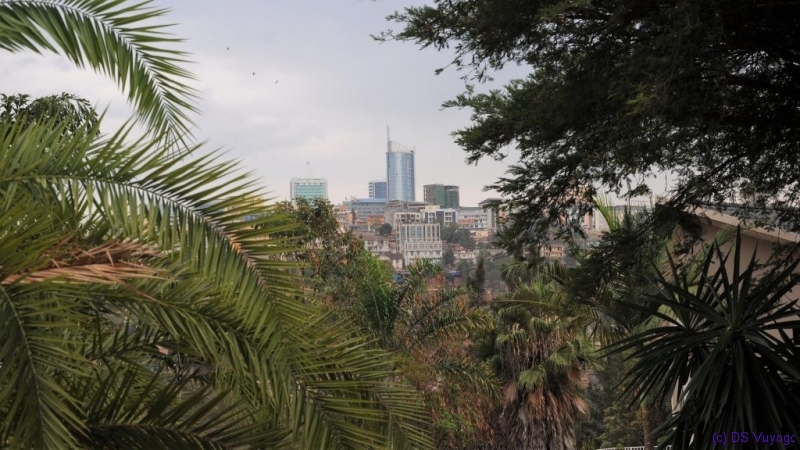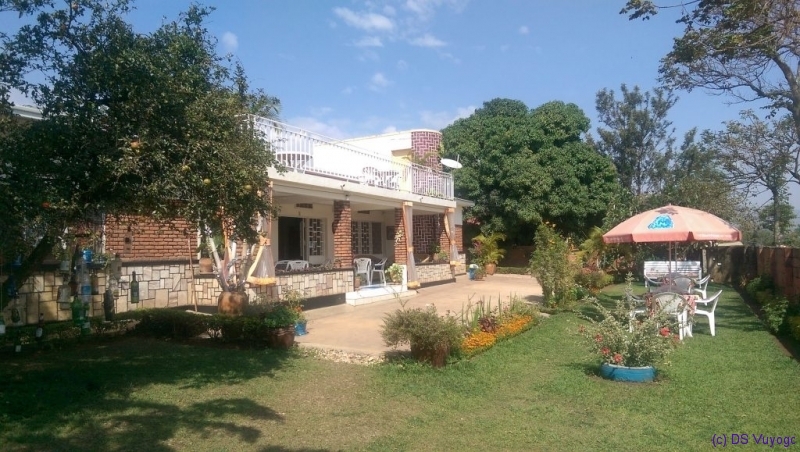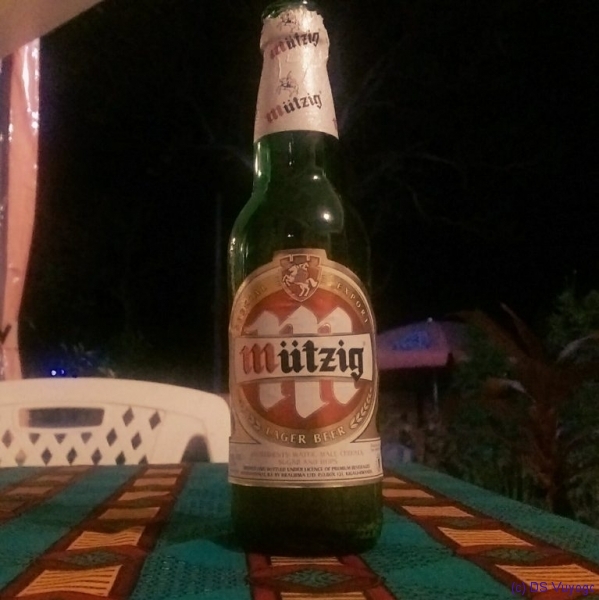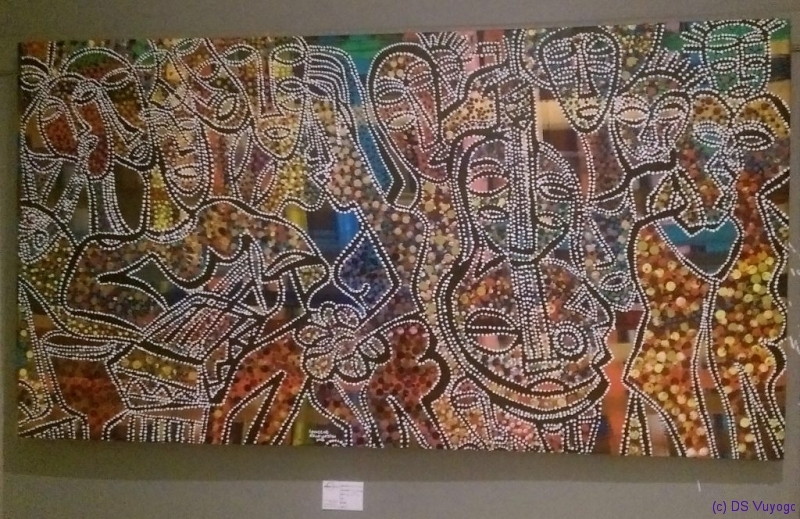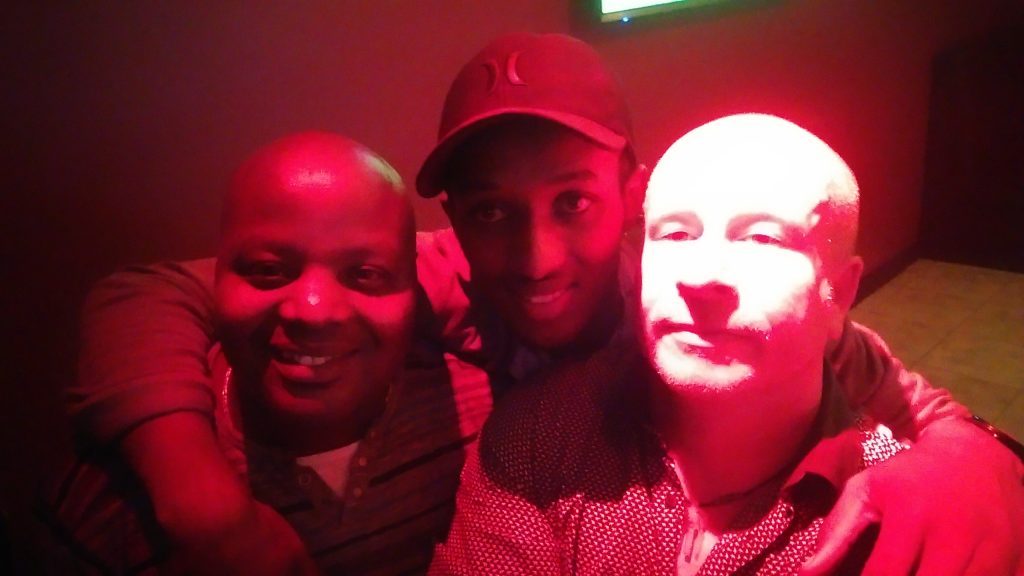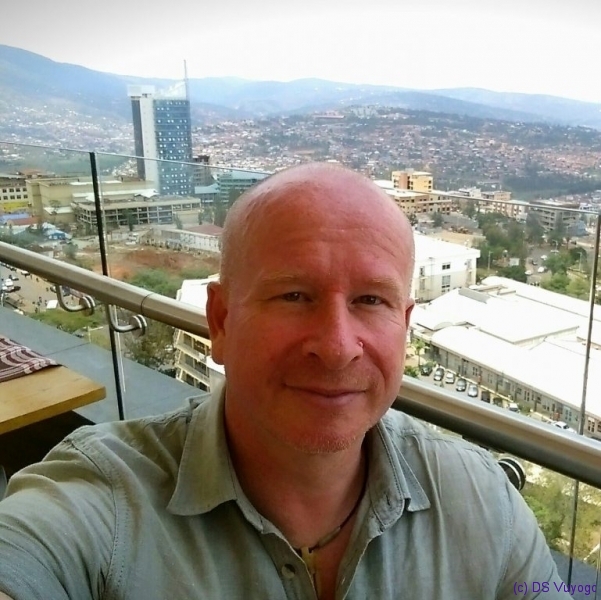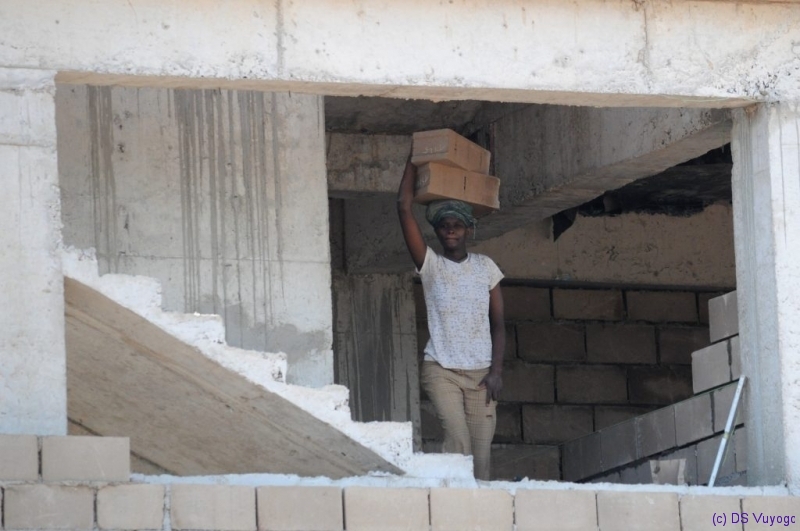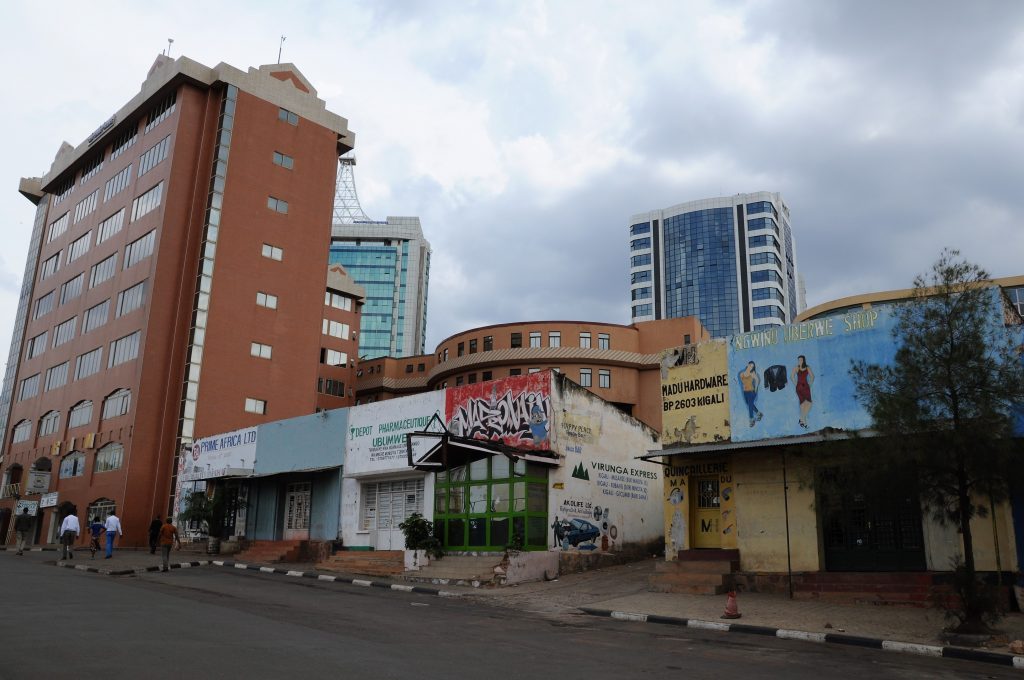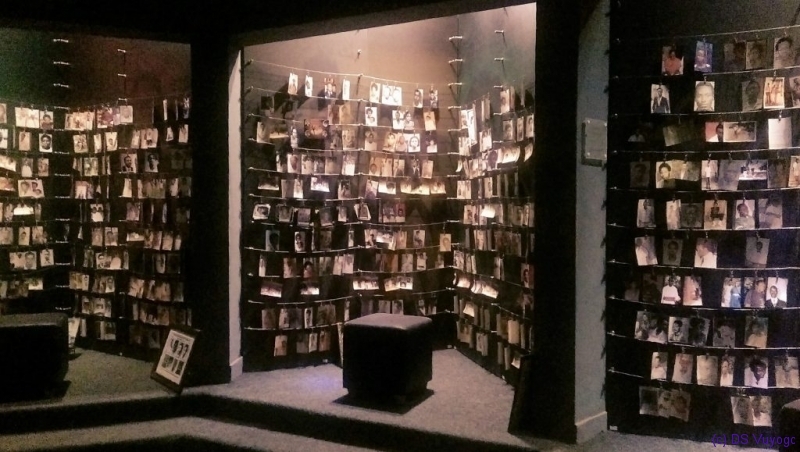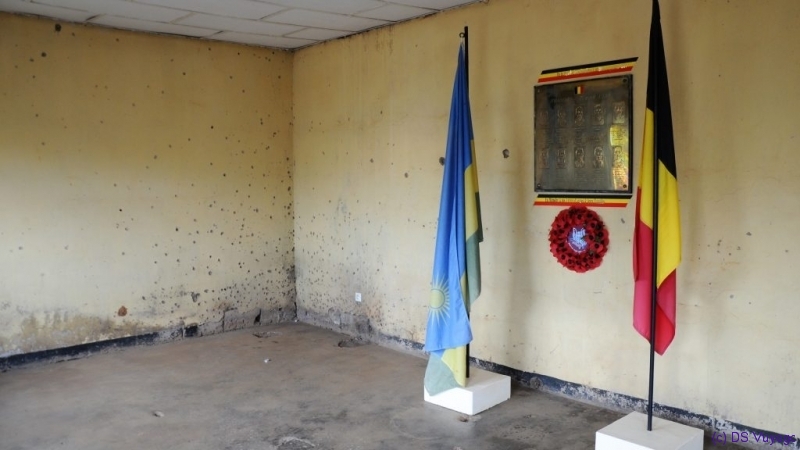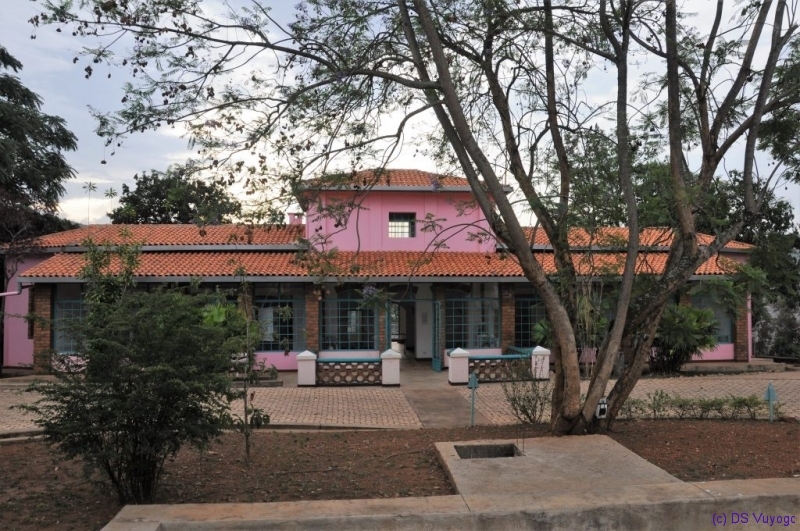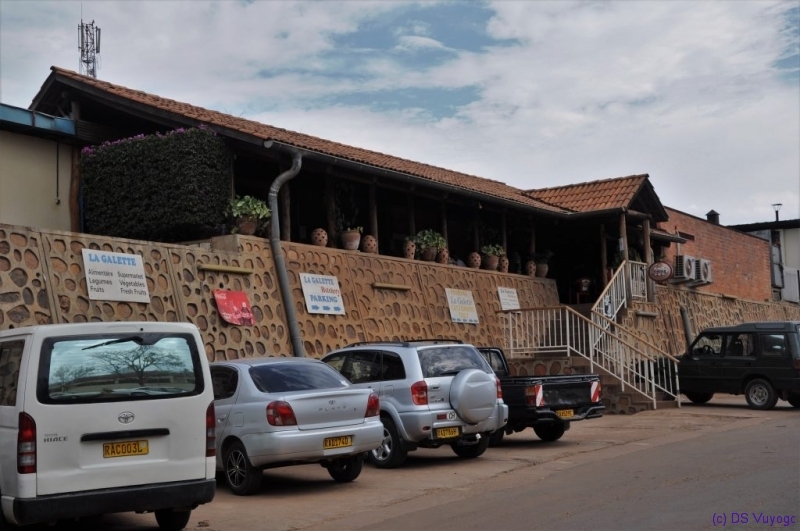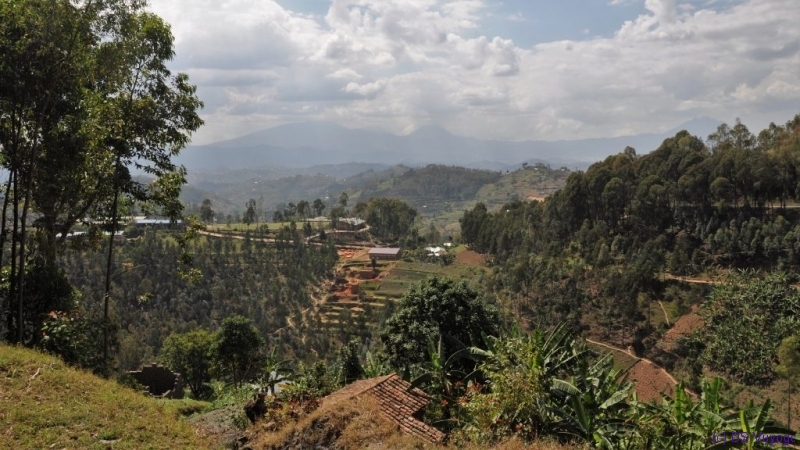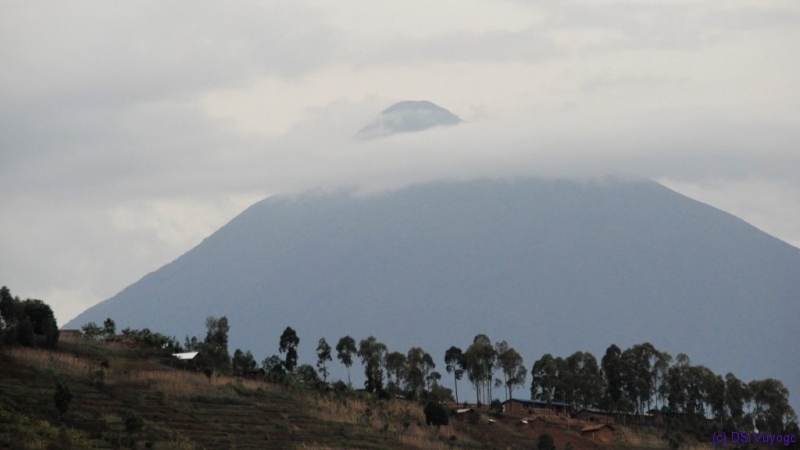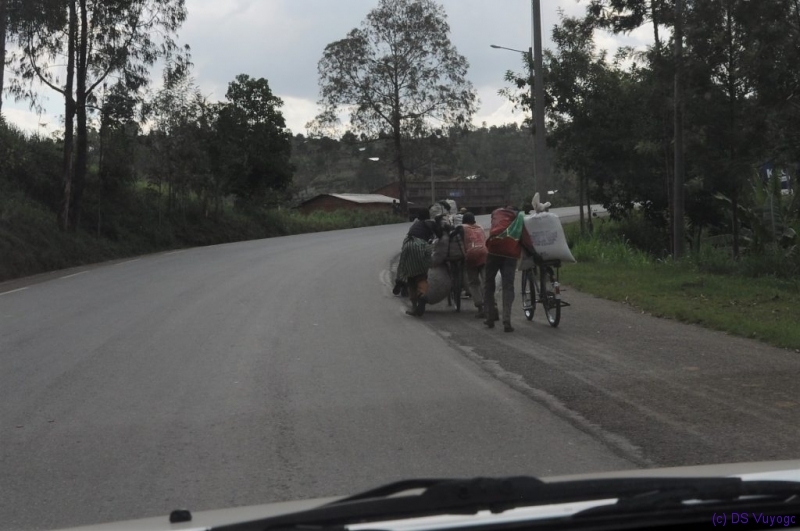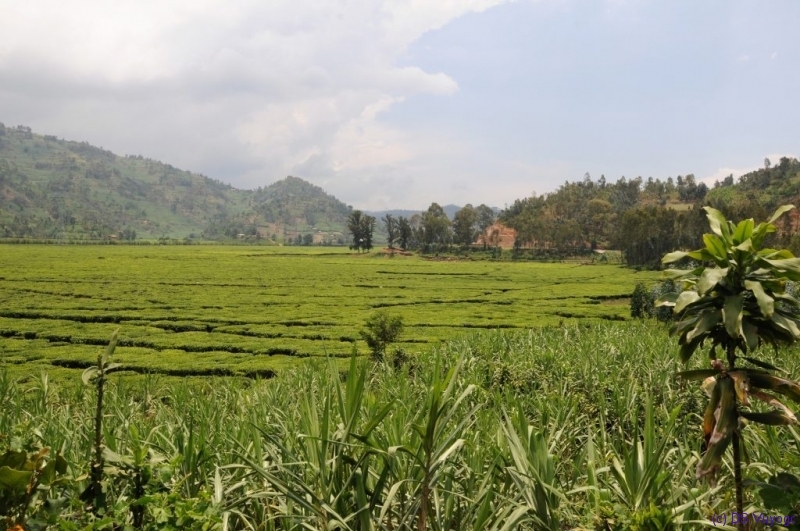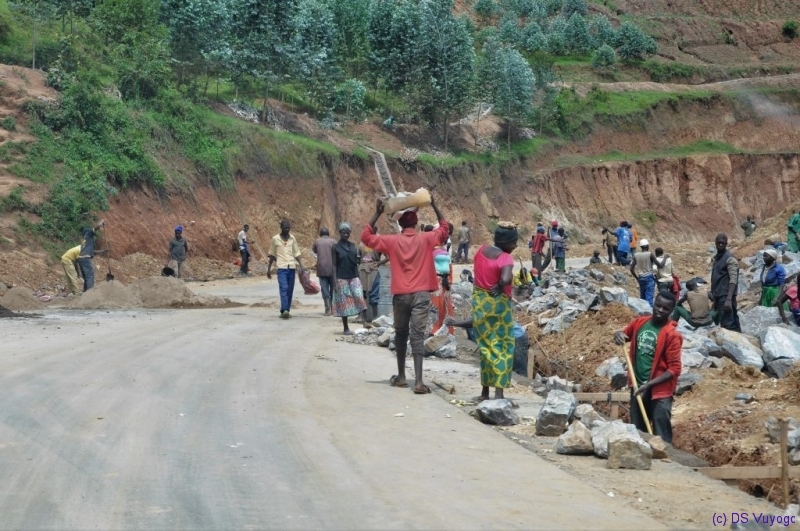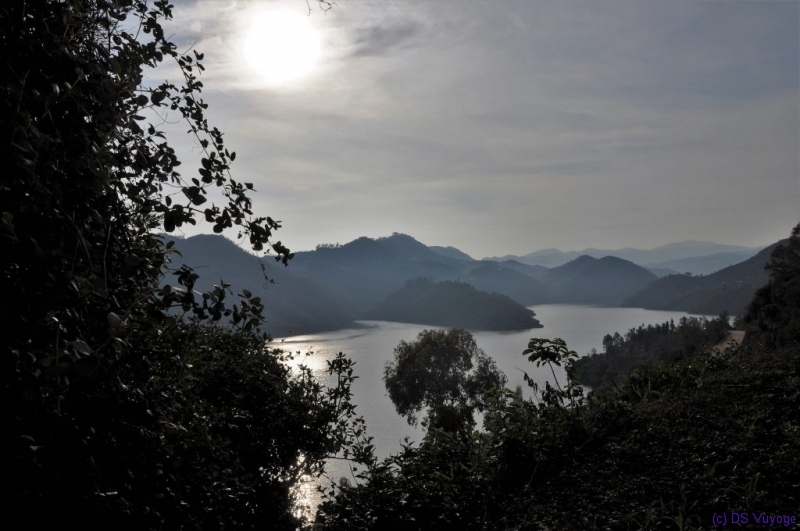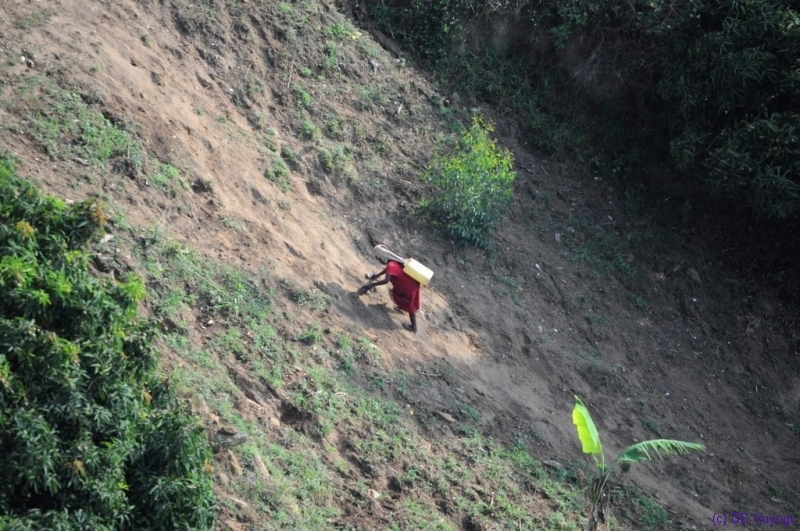The biggest surprise so far! But slowly … Coming in from Kabale in southern Uganda, already the border police gave me the sense of correctness that would prevail through the rest of my stay in Rwanda. Driving at 60km/h, the maximum speed in the country, and for once on the right side of the road again, our bus arrived towards evening at Kigali’s Nyabugogo bus station. Since my request to be picked up had apparently not been heard, I was left at the hustle and bustle of a big African bus station, where many a dodgy looking guy is seeking his fortune from a rather clueless mzungu. It was easy enough for me though to shake most of them off quite quickly, except for one who clung to my heels as I tried to negotiate the buses, taxis and touts at the various bus stops. Helped by a guy from an internet café, I took a cab and off we went towards Murugo hostel. On the way there, I was surprised by boda-boda drivers who were actually wearing a helmet, and indeed had a helmet for passengers as well (and would insist you wear it, as I later learnt)! And almost miraculously, coming from Uganda at least, there were lots of traffic lights, on major roads with countdowns for the green light, and on major roads the corners were equipped with LEDs on the curb. Just wow! Still, the layout of the town is rather difficult, even for a local taxi driver, since most roads are numbered, and the best thing to do is to know a landmark building nearby. I later learnt that the one relevant for my hostel was the Ministry of Agriculture, though no boda-boda (here called “moto”) or taxi driver knew it by this name, nor by its French version, but only as Minagri. The habit of abbreviating words may have been inherited from the French, though that language has been largely abandoned in official contexts in 2007, and relationships with France are complicated, to put it mildly.
I would come to enjoy my two stays at Murugo thoroughly, although at first I was mildly irritated by a group of young, well-travelled Africans who had come there for a few drinks. Why? They didn’t pay attention to me, the only mzungu here that evening. This was new to me, after my experiences also in previous years, when I’d found myself so often at the centre of people’s attention. This eventually inspired my post Stranger, in degrees.
However, on one of the next nights David, the owner of Murugo, and some of his friends made me feel more than welcome, and would take me out to a great Inema Art Centre night, or to the place with some of the best brochettes, Makoumba, on later occasions. Hey, David, Edgar, and James!
Kigali as a town is impressive – it is clean (currently no. 1 in Africa), partly due to umuganda (see below), well-organized, safe, and booming. Strongman Kagame‘s government has great plans, and the whole city, just like the country at large, shall be thoroughly modernized by 2020. Many of the old shops lining the roads of the inner city still will be gone by then. I fear that these “improvements” will come at a price, and not everyone will be able to keep up with the speed at which the country is being modernized.
Rwanda, it became clear to me on so many occasions, is a country looking forward, strictly forward. For looking back may not be permissible yet, never mind the numerous genocide memorials across the country, first and foremost the Kigali Genocide Memorial. The latter is just as impressive as the whole town, though obviously for a different reason. It is at the site of a mass grave in which some 25,000 people are buried. Numbers. One of the things I learnt there is that in order to understand a genocide we must not say so-and-so-many were killed, but we must understand and thus say that Pierre died, and Rosalie died, and Michel died, and Jacques, and so on and on and on.
The Memorial has a historical section, covering genocides in the history of mankind. No, I did not enjoy seeing Germany mentioned twice, and our long-term ally Turkey once. If genocides do not challenge our notion as supreme species then I don’t know what does.
Unsurprisingly, many parts of the exhibition are hard to bear, notably the personal photographs, the display of actual skulls, so many of them with still horrible looking cracks and holes in them. The children’s section became too much for me. There you learn about an individual child, his or her name, family, age in 1994, hobbies, favourite dish – and method of killing. The fourth child I learnt about was shot, and I caught myself thinking “You were lucky”, because by then and through the other examples I had learnt that being shot back then was lucky. I knew then I had to leave. Much came up later again in conversations, at Natwange in Lusaka, with Emanuel from Kigali and who for three evenings told us what it was like to be a seven-year old during the genocide. Puhhh. One of the most memorable things I heard more than once was the terror of the silence after the killings were over. Not even birdsong. Just silence all over the country.
…
Camp Kigali, the memorial for ten Belgian soldiers who were ambushed, yet held out for several hours against some 100 Rwandan soldiers, is one of the most dramatic anti-war memorials. To see the impact of the hundreds of bullets, the holes left behind by handgranades, and the corner in which the young men, mostly in their twenties, were killed – it is incredibly touching and brings the events of the genocide to life (no pun inended) in a very emotional way.
Here are some online short stories by Benjamin Sehene that capture part of that atmosphere.
Now Rwanda is moving forward, guided by a strongman who does not like opposition criticizing this process, and I wonder if that may be useful for some time, if only it can find an end at some point in the future. Maybe the country needs a good-news dictatorship that stabilizes a country in which, below the surface, the scars must still be open and sore, and revenge killings happen, especially in April (the month of the genocide), even though you won’t hear about them much.
This forward movement, regardless, reminded me of post-war Germany and the Wirtschaftswunder (economic miracle), which Rwanda seems to witness as well. What is more, with my East-German background I found it curious that Rwanda has the institution of umuganda, after which every adult has to put in community work on the last Saturday of the month. Of course, this reminded me of the subbotniks of my childhood and youth in the GDR! Ironically, the German connections, perceived or in fact, are plenty, not only in the beer, but also in the oldest house of Kigali, the Kandt House Museum. Here Richard Kandt, as it were, established the centre of the sometime German colony.
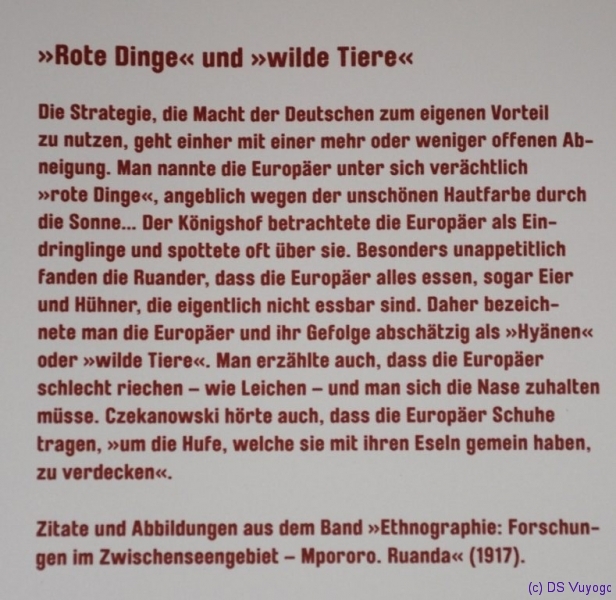
part of the exhibition at Kandt House, Kigali. A 1917 report on how disgusting the Rwandans found those redlings and their offensive, beastly habits.
A place I came to like was La Galette, despite its French name a German bakery and butchery. In a long conversation Erich, the butcher and decades-long resident in East Africa filled me in on the difficulties of running a business under what he sees as an increasingly socialist government. What a great conversation, and there was something very touching when he, a 73-year old Africa-seasoned guy, wished me well for my journey.
Leaving Kigali, I went north, then west, driving through a landscape so beautiful, my jaw dropped more than once, especially when I approached the volcanoes in the north.
RedRocks Camp at Nyakinama near Musanze became one of my highlights. I spent some five days here, enjoying the park-like layout of the camp, and even though it rained a lot and nights got rather cold (it’s around 1,800m above sea level). Although I spent most of my time at the camp, it became very eventful, including making banana beer, a bee attack, and making music – see below!
I was stunned by the fact that RedRocks has a small, very basic recording studio, once equipped by some German fellow from Kigali. When the people from RedRocks realized I know a thing or two about recording they brought in young guys who wanted to make recordings. Thus I spent a couple of days there, thoroughly enjoying my unexpected role as a producer in northern Rwanda.
“Fullstar” was one of the guys. Unfortunately, he spoke neither English nor French well enough, which made it difficult for me to know what he really wanted his song to sound like. I liked is singing, all with rather free timing, and thusin my first take on it I let the song start with an a capella intro, and the beats would set in after a minute or so. When I played it to some of the local guys they insisted the beat starts at the beginning. I objected saying the song would sound like any other then, to which they, eyes wide open in delight, affirmatively replied “Yes!” A frustrating moment for a producer. Here is a compromise version:
I was very touched by the remark of two really good singers who said “It takes a white person to come here and encourage us. Everybody else is just criticizing and making you feel down.” They both had very good voices and knew music, and I liked what they did, even though gospel – their choice of music – is not my cup of tea. So sad if what they say is true, which I’m inclined to believe after my experiences in other contexts.
It was also here that I met two guys with guitars over their shoulders, and as I pulled over with my car and tried to communicate with them, eventually I took out my guitar and played some songs to an already large crowd around us. All they could tell me was “school”, and so I asked them to jump in and show me directions. We ended up at a carpenter’s house who turned out to be a guitar player and teacher form Congo, Kadet. After we played guitar together I asked him to teach me – he is really good at playing Rumba styles. No surprise, everyone here knows that Congolese guitarists are dope!
Leaving RedRocks, I picked up Mitch and Cecily and gave them a lift to Kibuye. I liked being around them, they were (are, I hope) such a sweet couple, on their journey around the world. Mitch travels with a drone camera, and it was amazing to see how local people, especially in the rural areas, reacted to it. There was fascination but also utter panic, mostly when the drone honed back in. Here’s some of his caption of our shared trip through north-western Rwanda.
A noteworthy incident on our way: upon entering a village, we found a young boy of maybe ten years completely helpless in the face of his collapsed bicycle. Basically his load was too heavy against his body weight, and since the road led upwards the bicycle just fell over backwards. I stopped, and Mitch and I tried to lift the two sacks with carrots – no way. The load was too heavy for the two of us, let alone for that boy. It was only then that some of the local guys joined us, and we managed to get the sacks off the bicycle, and lift it again. Looking at the guys I eventually shouted at them angrily because they’d been sitting there all the time, leaving the young boy in distress. Why does it take two wazungu to start things off? Where is solidarity, sense of community, ubuntu, here?
Eventually, after long stretches of road works, we reached Kibuyu at Lake Kivu (pronounced Chivu in Kinyarwanda), and I pitched my tent Macheo Ecolodge – with a fantastic view of the huge lake.
Every morning, I would not only enjoy the view across parts of the lake. I also noticed ta little girl, every morning struggling to get down to the lake to fetch water with her 5l jelly bin (there must be a factory somewhere that provides yellow jelly bins to all of East Africa). I had to think of children in Germany, Europe – who could ever ask their child, at age 5 or 6, regularly to provide for the family? This girl was struggling severly on the way up. She had to take her slippers off, or else she would slip down, and the now-full bin was tied to her head and rested on her back. Somebody down at the lake shore had attached it in this way, and I am convinced she would never be able to put it back on should it fall off her back on the way up.
On my way back to Kigali, I have another two passengers, again a couple, Darius and Lena. Both of them, though at different times, volunteered here in Kigali; he as a medical doctor, she at the Goethe Institute. Hey guys, I hope you’re doing fine!
Trying to find a way to get to Tanzania, preferably to near Arusha, at long last I notice that visas are not issued at the border. This makes the decision easy, and I book a flight to Dar es-Salaam, via Mount Kilimanjaro. Kigali International and Air Rwanda, like the country I’m leaving, are impressive – more safety than I’ve seen in many other places, clean, well organized and efficient. Wow, Rwanda!

